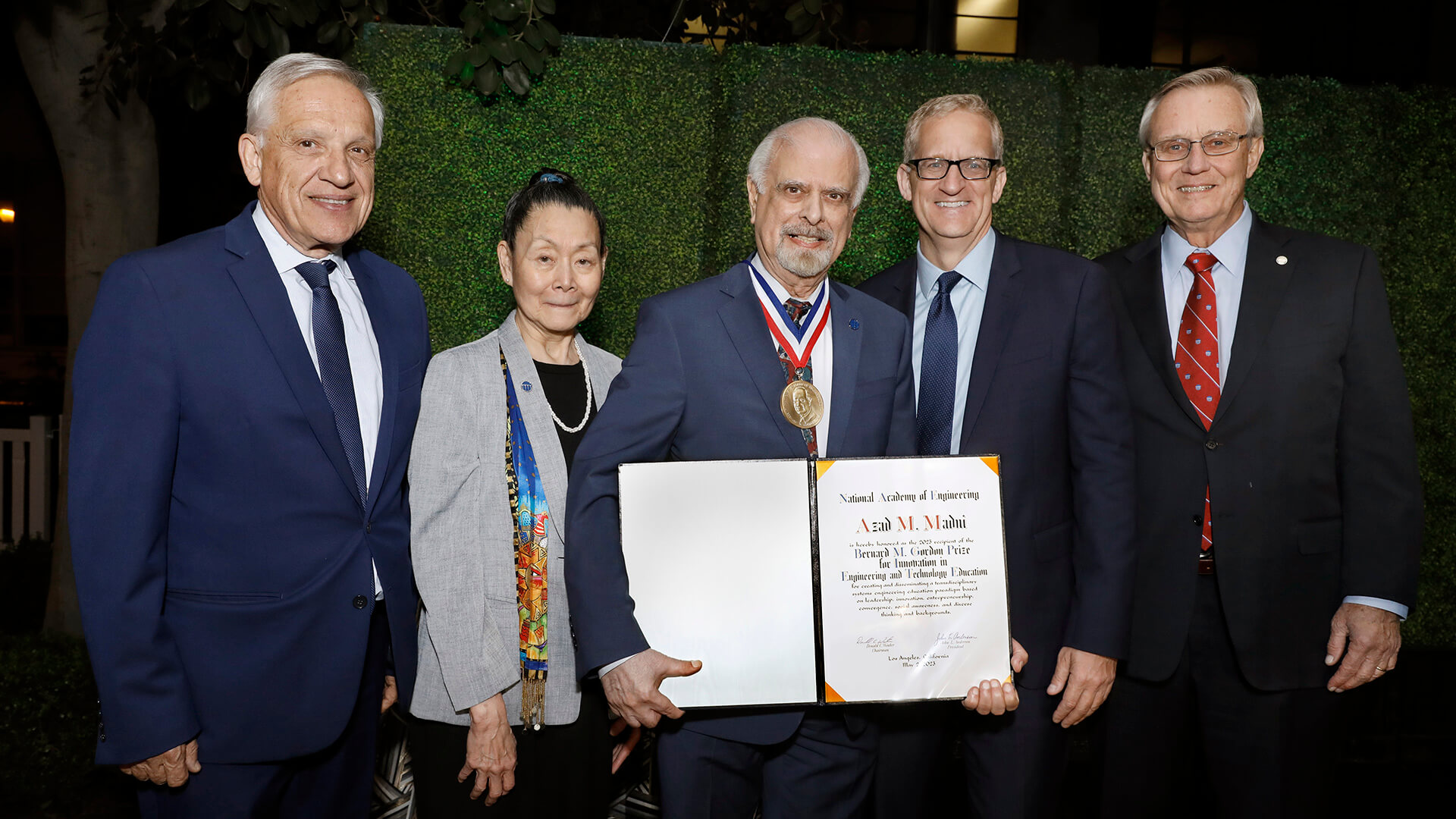Azad Madni Receives NAE’s Gordon Prize

Azad M. Madni, holder of the Northrop Grumman Foundation Fred O’Green Chair in Engineering and University Professor of Astronautical Engineering, was awarded the National Academy of Engineering’s Bernard M. Gordon Prize for Innovation in Engineering and Technology Education. This marks the second time in as many years that a member of the USC Viterbi faculty has received this prestigious honor, which recognizes the introduction and cultivation of “new modalities and experiments in education that develop effective engineering leaders.”
Madni, who was elected to the NAE in 2021, was recognized for his work that the Academy said “defined the field of transdisciplinary systems engineering and created the transdisciplinary systems engineering education (TRASEE™), which fosters out-of-the-box thinking while enhancing retention and recall of concepts and facts through innovative storytelling and role-playing approaches.”
“We are thrilled that our distinguished colleague Azad Madni received the 2023 NAE Gordon Prize,” said USC Viterbi Dean Yannis C. Yortsos. “Azad has pioneered systems engineering as a fundamentally transdisciplinary field encompassing socio-technical and human-centric aspects. His recognition by the National Academy is fitting, well deserved and exhilarating.”
Madni believes educational programs need to move away from what he called “stovepiped curricula” or “disconnected islands of concepts and facts.” The field of transdisciplinary systems engineering that he founded “exploits the convergence of engineering with other disciplines to address complex, socio-technical problems that cannot fully be addressed by engineering alone,” he explained. This means integrating concepts from disciplines such as cognitive psychology, biology, economics and decision-analysis into engineering coursework. In addition, he leverages “principles of storytelling” from entertainment and the arts, and role-playing from simulations and gaming environments, to enable students to appreciate the nuances and understand the different perspectives of problems.
“Virtual worlds provide an inexpensive, flexible and safe environment to evaluate the performance of systems operating in potentially hazardous environments,” said Madni, whose research is in the fields of aerospace and defense.
Madni also recently received the IEEE Simon Ramo Medal for exceptional achievements in systems engineering and systems science. He is a fellow or life fellow of 10 professional science and engineering societies, including AIAA, AAAS, IEEE, INCOSE, IISE and the Washington Academy of Sciences.
Last year, Dean Yortsos was one of four individuals who jointly received the Gordon Prize for the 2009 founding of the Grand Challenges Scholars Program, now part of more than 100 engineering schools worldwide. Co-recipients were Jenna P. Carpenter, Campbell University; Thomas C. Katsouleas, University of Connecticut and former dean of the Duke University Pratt School of Engineering; and Richard K. Miller, Olin College of Engineering.



